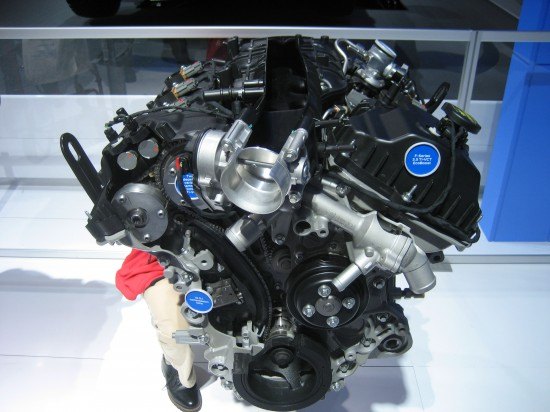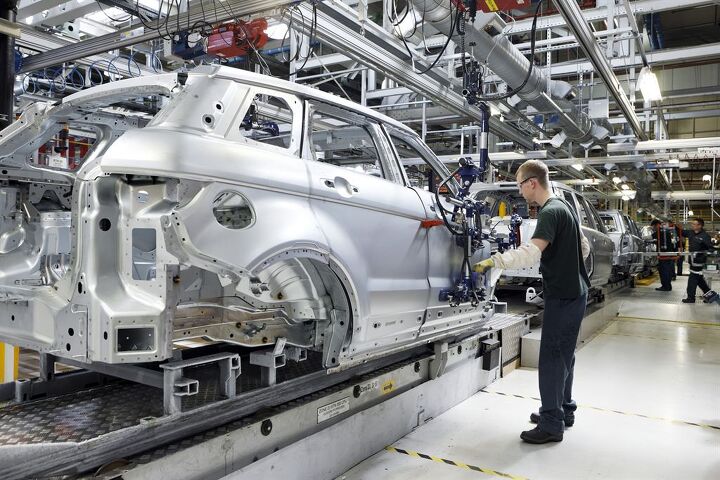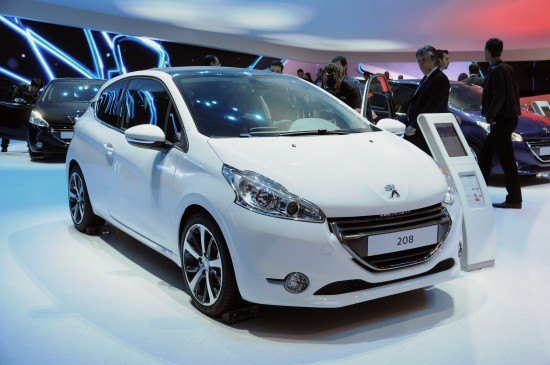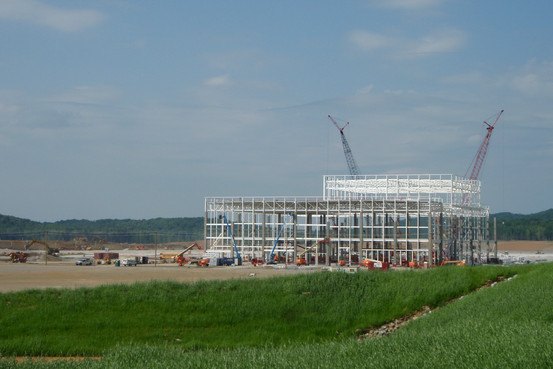#Manufacturing
Ford Adding Third Shift At Cleveland Plant, Workers From Closed Plant Filling Spots
Ford’s Cleveland Engine Plant No. 1, which is responsible for building their popular Ecoboost V6, as well as the naturally aspirated 3.7L V6 used in the F-Series and Mustang, is adding a third shift to keep up with demand. But the extra 250 jobs will largely come from the Cleveland Engine Plant No. 2, which is being shuttered this week.
Jaguar Land Rover Gets 35,000 Applicants For 1,000 Jobs At Halewood Plant
When Jaguar Land Rover announced plans to start hiring workers at their Halewood plant, the company received 6,000 applications in less than 24 hours. One month on, and Jaguar has received a further 29,000 applications.
Saddled With Social Costs, French Car Makers Bid Adieu To Domestic Manufacturing
A Financial Times report on the “de-industrialization” of France (sub. required), and the erosion of the country’s manufacturing base took a trip to a Peugeot factory, where the new 208 is leaving the lines and gearing up for a big launch. Peugeot has been suffering financially in recent years, amid a backdrop of a declining manufacturing industry, some employees are blaming the heavy burdens of France’s welfare state.
Ford Australia Secures Government Money, Raises Questions About Industry's Future In Australia
Ford’s Australia branch is getting $34 million AUD (roughly $35 million U.S. dollars) plus an unspecified contribution from the government of Victoria (an Australian state), to sustain a Ford plant in Melbourne. Total investment is said to be roughly $105 million USD. Holden, GM’s Australian division, is looking for some government funds too, and its raising questions about the viability of Australia’s domestic car industry.
The Case For GM, In Glorious Powerpoint
With GM’s share price currently hovering below $25, well under its $33 IPO price, The General is holding its second annual Global Business Conference in hopes of encouraging investors the world over to buy into its turnaround. A webcast is currently streaming over at the GM Investor Relations website, but the key points are available in slides available in PDF here. The presentation involves nearly every level of GM’s business, so listening in and reading the entire PDF is going to be the best way to make sense of what GM is trying to communicate… but if you just want an overview, check out the gallery below for a few hand-picked slides, illustrating some of the more important points.
With Nothing New To Build, The UAW Charges Mitsubishi More
Automotive News [sub] reports that Mitsubishi will have to give UAW workers at its Normal, Ill plant a $1.60/hr raise because it doesn’t yet know what vehicle or platform it plans to build there in the future. Mitsubishi’s 2008 contract with the UAW required the disclosure, but the Japanese automaker requested an extension which the union membership proceeded to vote down. Because the extension failed, Mitsubishi is required by the terms of its contract to raise hourly pay to $25.60/hr. The plant in question currently builds Mitsubishi Eclipse, Endeavor and Galant models, which have collectively sold 11,215 units through August of this year. And thanks to the combination of low demand for Normal-built products, and the union’s failure to extend the decision period, it seems as though Mitsubishi may just walk away from the plant.
New Plant Plans Highlight Strengths In The US Auto Industry
One of the most overlooked arguments during last year’s bailout debates was the fact that America’s automotive industry was not under threat. Sure, a few companies based in Detroit were panhandling at death’s door, but so-called “import brands” have been closing the gap in terms of Americans employed for years. And America’s transplant auto industry is continuing to grow. Even as the Detroit firms have slimmed down their North American manufacturing footprints, foreign firms are moving ahead with American and NAFTA-area plants despite the economic downturn. Not only do these moves signify possible new jobs, they also represent a long-term bet on the fundamental strength of the US economy.





















Recent Comments